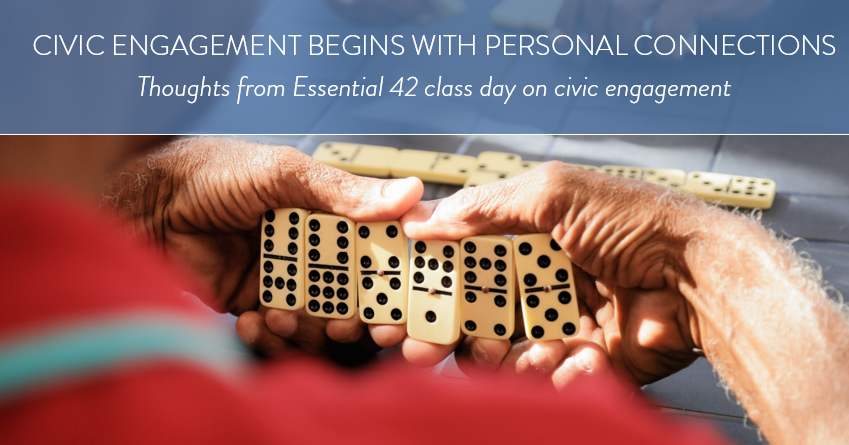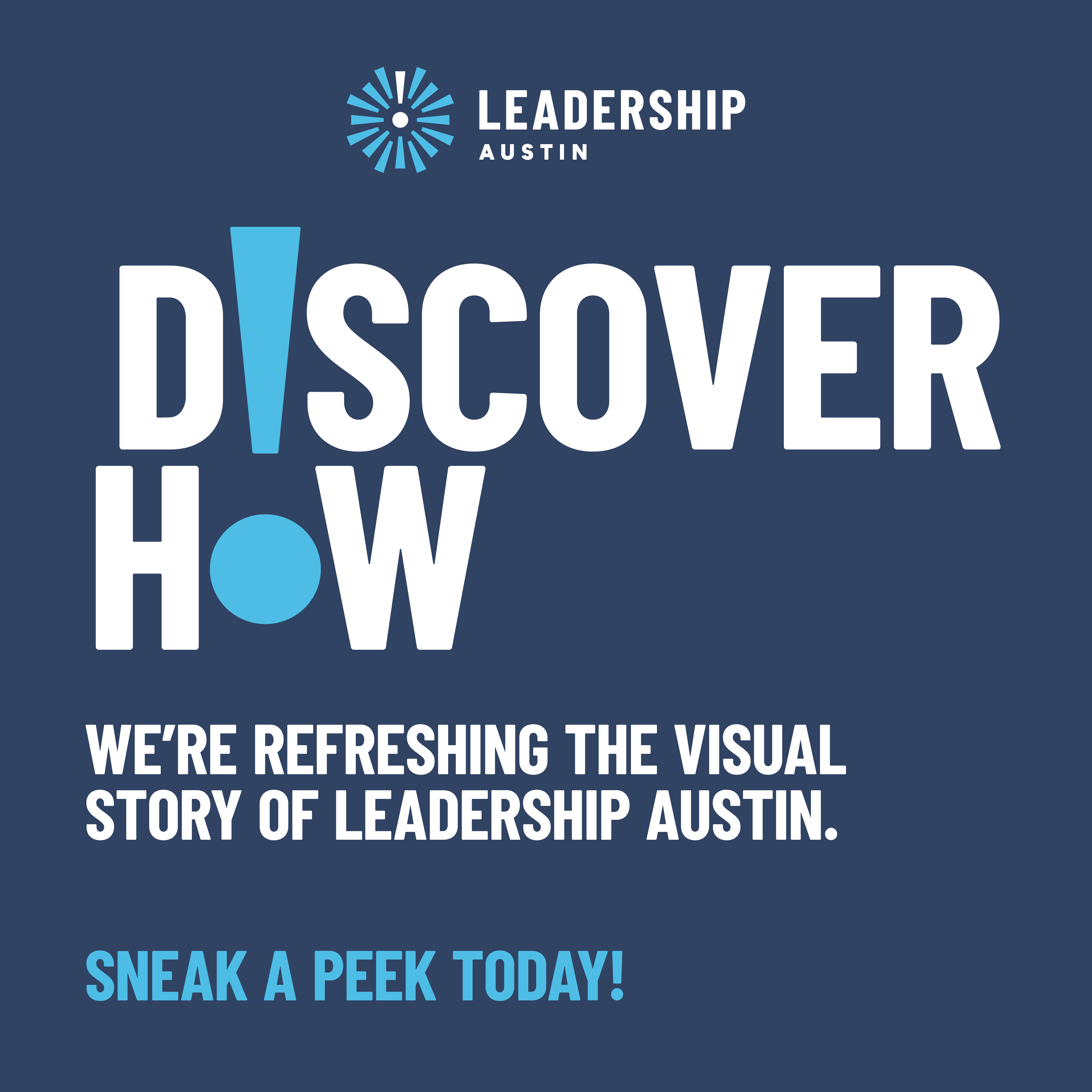
“Here we stand at the precipice. All the problems of today are overwhelming, COVID-19, violence towards Black Americans, our profoundly damaged environment, poverty, the list goes on and on. It’s no wonder some feel motivated to fix it – any of it, all of it. We want to apply a salve of immediate action to our fear and anger. We want to release our love and hope in healing bursts of quantifiable action.
October’s Essential Class session on demographics and civic engagement challenged us to think smaller. It reminded us that though we all want to change the world, the world starts right outside your own front door. We heard from Ricardo Zavala, Dove Springs Proud founder and president, and Austin City Council Member Natasha Harper-Madison. Both shared how the need they saw around them, their connection and shared lived experiences with their communities informs their leadership.
As we learned about the profound impact Dove Springs Proud has on individuals and the community at-large, I wondered how to get involved without overstepping. How do I help without imposing? Ricardo graciously suggested reaching out to established neighborhood leaders and doing so ready to listen. Council Member Harper-Madison shared that she started her public service journey by going door to door in her neighborhood and asking, “What do you need and how can I help you?” These community leaders lead through curiosity. They lead by listening.
Well-meaning people pour their energy into fixing things. Seeing a need from 10,000 feet, they dive in with all the answers. But answers to what? What is the problem? What is the need? What is already being done to address it? Who are the people that are or will be impacted? And not just who are they demographically, but who are they? What are their stories? What are their deepest needs and who do they trust?
Albert Einstein said, “If I had an hour to solve a problem, I’d spend 55 minutes thinking about the problem and 5 minutes thinking about solutions.” If we want to provide solutions, we must first gather both quantitative and qualitative data. We must ask questions, listen openly to the answers, believe people when they share their experiences, play dominoes, loan a cup of sugar, ask for a cup of sugar, laugh together, and witness need and pain. We must have patience and courage to press in with curiosity, rather than quickly offering a “solution” that may do more harm than good. Only after we have personally or proximately experienced the pain, gained clarity about the complex landscape, can we begin to think about solutions.
So, take a deep breath, pack your patience, and wade in with care and compassion as you open your eyes and heart to the needs of our community. Spend a disproportionate amount of time and energy defining the problem before trying to solve it. Use your energy and enthusiasm to build real connections and listen. You may just find you’ll learn something about yourself too.”
Drew Williams (he/him/his), Essential 42 – Class 2021
Assistant Travis County Attorney


